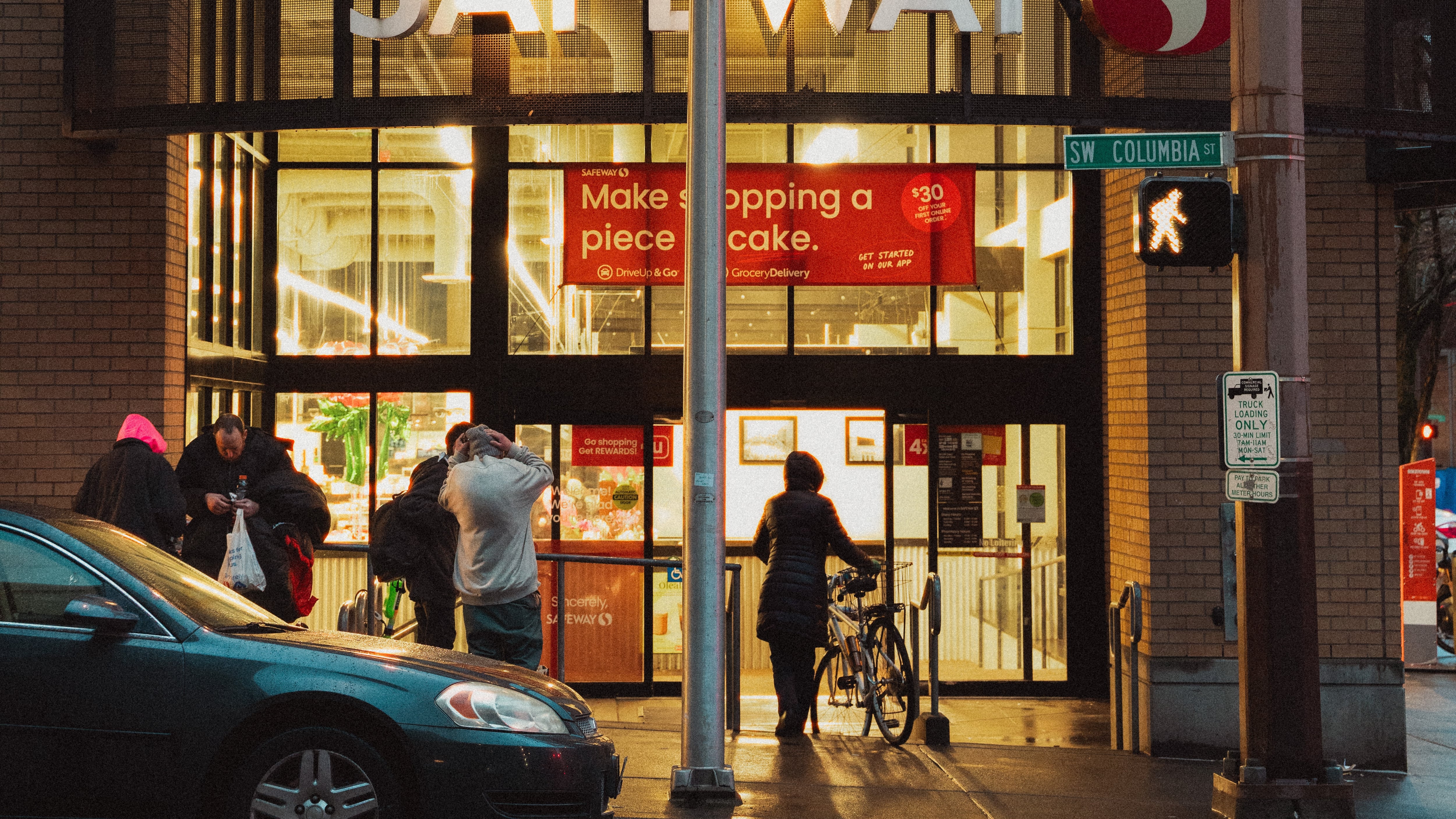Story: HOUSE OF CANS
Date: Feb. 7
What happened: In 2023, then-Portland Police Chief Chuck Lovell went public with a connection his officers observed daily on downtown streets: People were exchanging empty cans and bottles directly for fentanyl. Oregon’s pioneering Bottle Bill, passed in 1971, and the low street price of the synthetic opioid had combined to create a new currency. Ten cans would buy one fentanyl pill, or “blue.” WW examined the fallout on downtown stores and neighborhoods. After the story appeared, Gov. Tina Kotek took action, suspending the legal obligation of two hard-hit stores—the Safeway at 1030 SW Jefferson St. and a Plaid Pantry on an adjacent block—to accept returns.
What’s happened since: Over the howls of disappointment from people who live near the stores, Kotek lifted the exemption after two months. But the Northwest Grocery Association and Plaid Pantry both say the problem for their customers and staff remains acute. On Dec. 16, Mayor Ted Wheeler convened stakeholders, including the Oregon Beverage Recycling Cooperative, which administers the Bottle Bill, to examine shifting the burden of redemption from retailers to a nonprofit in the Central Eastside, the People’s Depot. NGA president Amanda Dalton says the group is “committed to trying to launch this Portland solution.”

